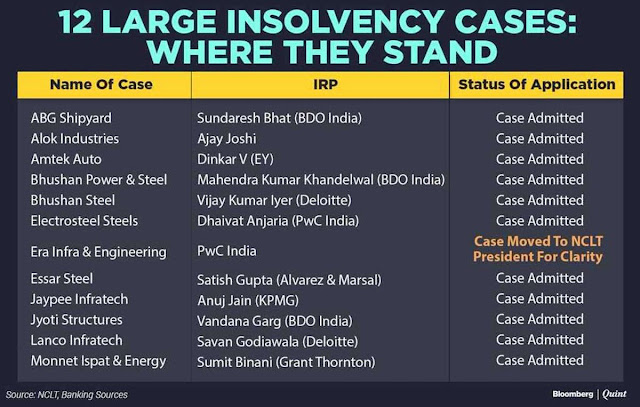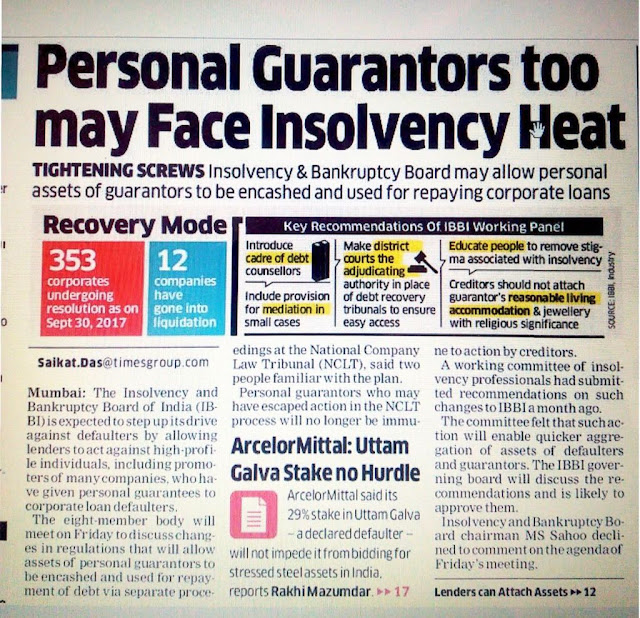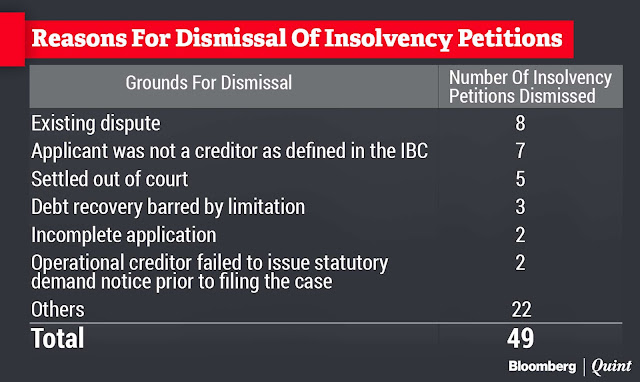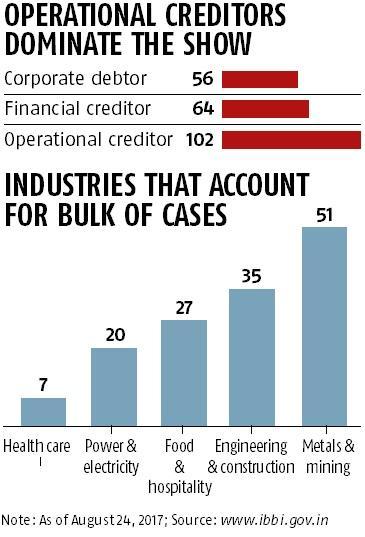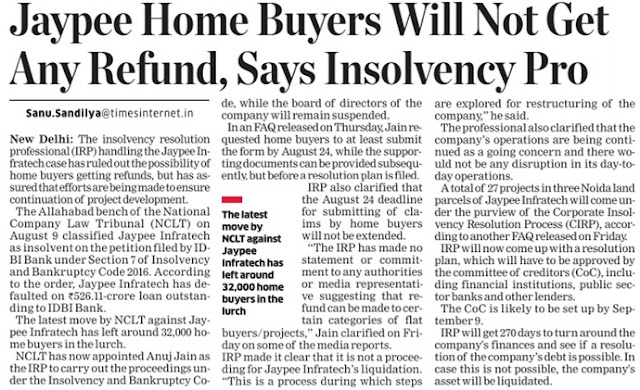WHETHER
A DIRECTOR CAN BE ARRESTED UNDER SECTION 138 OF THE NEGOTIABLE INSTRUMENTS ACT,
1881 (NI ACT) WHEN A MORATORIUM ORDER WAS ISSUED UNDER IBC 2016?
CHEQUE
BOUNCING CASE
Recently, I received a call from one of the director of the
company. He informed me that his creditors have filed an insolvency proceedings
under IBC, 2016 and NCLT has approved their plan and initiated an insolvency
proceeding and declared a moratorium under section 14 of the Insolvency and
Bankruptcy Code, 2016.
He is receiving arrest threat from a police officer as an
action under section 138 of the Negotiable Instrument, 1881 which was ordered
by a court against him and other directors.
When he informed the police official that already a
moratorium has been issued under IBC 2016 and hence, proceedings under section
138 of the Negotiable Instrument, 1881 is to be kept pending till the
insolvency proceedings are over.
However, the police official is not accepting the same and he
is threatening to initiate action under the Negotiable Instrument, 1881.
Is the Police official is right or does not aware the recent
development under IBC 2016. This issue is faced by many directors of the
various companies in India who have bounced their cheques and is undergoing the
process of Insolvency proceedings.
WHAT IS MORATORIUM ORDER UNDER SECTION 14 OF THE INSOLVENCY AND
BANKRUPTCY CODE, 2016?
Moratorium order under section 14 of the
Insolvency and Bankruptcy Code, 2016
|
It refers to a period when no judicial
proceedings for recovery, enforcement of security interest, sale or transfer
of assets, or termination of essential contracts can be instituted or
continued against the corporate debtor or its director
|
|
|
WHO CAN CLAIM AN ACTION UNDER IBC 2016?
If a creditor claim is Rs 100,000 or more and
the corporate debtor is unable to pay
|
A petition for insolvency against a corporate
debtor can be triggered by a financial creditor, an operational creditor or
by the corporate debtor itself.
|
WHAT IS MEANT BY CORPORATE INSOLVENCY RESOLUTION
PROCESS? (CIRP)
CIRP
|
It is time bound and the relief of moratorium
is available to the corporate debtor
|
|
|
|
Insolvency process is to be completed within
|
CIRP-
Normal Process
|
180 days
|
Plus maximum 90 days
|
270 days
|
CIRP-Fast
Track Process
|
90 days
|
45 days (one time)
|
135 days
|
WHAT SECTION 14 OF IBC CODE SAYS ABOUT MORATORIUM?
14. (1) Subject to provisions
of sub-sections (2) and (3), on the insolvency
commencement date, the Adjudicating Authority
shall by order declare moratorium for prohibiting all of the following,
namely:—
(a) the institution of suits
or continuation of pending suits or proceedings against the corporate debtor
including execution of any judgment, decree or order in any court of law,
tribunal, arbitration panel or other authority;
When section 14 of IBC code clearly states
that no proceeding against any corporate debtor can be taken due to any judgment, decree or order in
any court of law, tribunal, arbitration panel or other authority, how an
arrest under section 138 of the Negotiable instrument Act can be
initiated. This is the main question
still to be clarified.
STRICT CALM PERIOD
The IBC offers that after the initiation of
insolvency proceedings for revival of the corporate debtor, there should
prevail a stern calm period and complete moratorium in all cases where the
primary liability is that of the corporate debtor.
Thus, even proceedings against the guarantors
or the directors of the corporate debtor should be stayed until the committee
of creditors delivers its verdict on whether revival of the corporate debtor is
possible or not.
WHETHER
MORATORIUM COVERS DIRECTORS WHO HAVE BEEN FOUND GUILD UNDER SECTION 138 OF THE
NI ACT?
In the insolvency proceedings, the major
accountability is that of the corporate debtor and when there is a stay of
proceedings (moratorium) against the corporate debtor, it will mechanically end
in transferring the chief liability to the director of the corporate debtor.
This ultimately will result in the opening of
floodgates and will mean that the creditors will chase the directors during
what is supposed to be a period of calm. The intent to provide a calm period
during which the focus of the creditors is on revival of the corporate debtor
will result in a futile exercise.
ULTRATECH
ENGINEERING LIMITED CASE
In the above case, NCLT,
Mumbai held that an order of Moratorium issued under IBC Code supersedes
any other Act in force. That means no action can be initiated against directors
of company under insolvency for an offence under section 138 of the NI.
Whether Insolvency and Bankruptcy Code, 2016 (Code) supersedes any
State Law ?
Held yes by Mumbai NCLT in ICICI Bank Ltd vs. Innoventive Industries
Ltd.
CONCLUSION
It may be concluded
that the IBC has not defined what acts will preclude if moratorium order is
issued, and whether the proceedings under the ambit of section 14 of the IBC
can be enacted against a corporate debtor or its director or not.
However, the
morphological of section 14 is extensive and the purpose of the legislature was
to offer a period of complete calm period to a corporate debtor under
CIRP.
Suitable circular or
clarification should be issued under IBC 2016 so that the directors who have
defaulted payment and has been indicted under section 138 of NI Act are
safeguarded until the moratorium period under IBC 2016.
